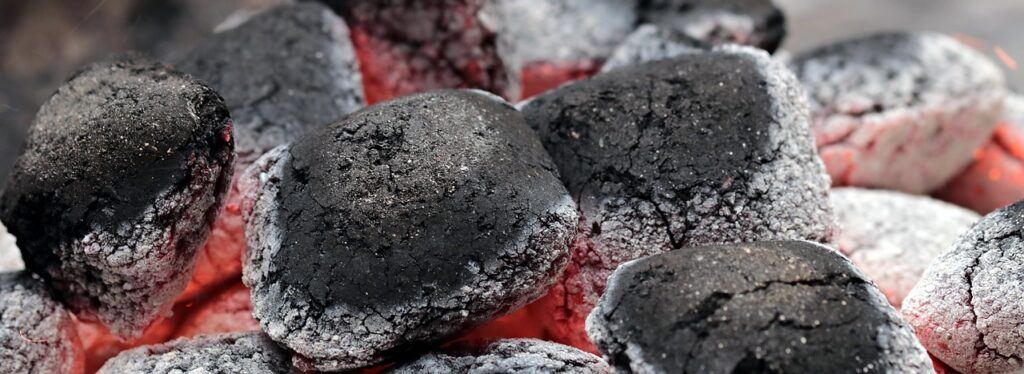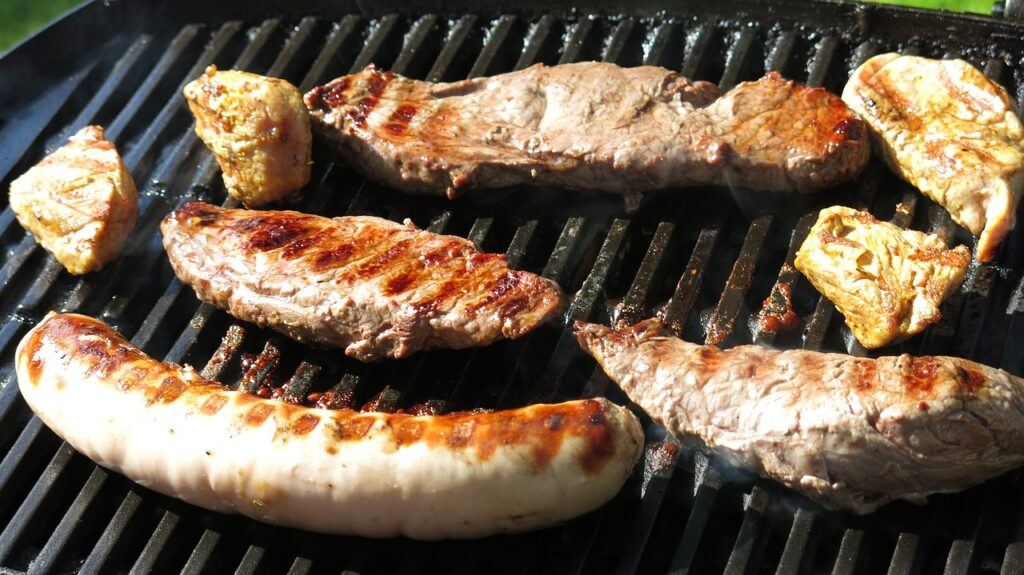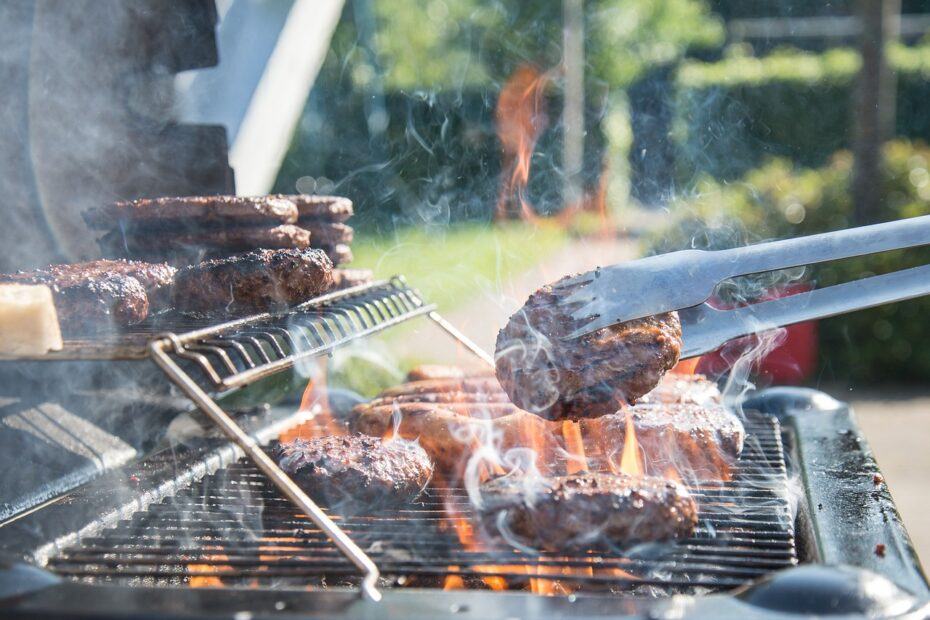Grilling is a beloved cooking method that brings people together over the enticing aroma of sizzling food.
Not only is it a fun way to cook, but it’s also a healthy way to prepare your meats and vegetables.
Whether you’re a seasoned grill master or a novice, choosing the right type of grill is crucial to achieving that perfect experience.
There’s no wrong answer – choosing a grill is all about the flavor and cooking style you’re hoping to achieve.
Will you go for the smoky taste that’s synonymous with a charcoal grill, or do you prefer the convenience and clean flavors that gas grills offer?
Perhaps the precision of electric or the innovation of pellet grills is more your speed.
Either way, in this guide, I’ll walk you through the various grill types, helping you decipher which might be the ideal match for you.
After reading, you’ll know all the benefits and drawbacks that come with each style of grill, making you well-equipped to choose the right option for your backyard.
Let’s ignite this discussion by starting with a classic: charcoal grills.
There’s a lot to love about them, but there are also some considerations that you’ll need to keep in mind.
Charcoal Grills: For the True Grill Enthusiast

If you love the ritual of grilling and savor the smoky flavor, a charcoal grill might be your backyard best friend.
The traditional allure of charcoal grilling lies in its ability to infuse food with a distinct taste that gas or electric grills can often only emulate.
When it’s about achieving that authentic grilled flavor, purists won’t settle for anything less than charcoal.
- Pros:
- Authentic flavor: Charcoal grills impart a distinct smoky flavor to food.
- High temperatures: Charcoal grills can reach higher temperatures, ideal for searing.
- Affordable: Charcoal grills are often more budget-friendly.
- Cons:
- Longer preheat time: It takes time for charcoal to reach optimal cooking temperature.
- Messy cleanup: Dealing with ash and charcoal residue can be messy.
- Temperature control: Achieving precise temperature control can be challenging.
Charcoal grilling isn’t just about the taste, though – it offers a level of versatility unmatched by other types.
From searing steaks at high temperatures to slow-cooking ribs, you have the power to play with fire.
However, mastering these temperature adjustments requires experience and a bit of patience. It’s a hands-on process that involves managing the coals and understanding airflow.
Preparing a charcoal grill does take more time and effort than flipping a switch on a gas or electric model.
So you must be ready to light the charcoals, wait for the right temperature, and deal with more hands-on cleanup afterward.
Also, maintenance is key to keep your charcoal grill in optimal condition over the years.
An often overlooked aspect of charcoal grilling is its environmental impact.
Charcoal grills produce more emissions than their gas counterparts, making them less sustainable.
If eco-friendliness is high on your priority list, you’ll want to weigh this con against the pros of flavor and versatility.
This is the charcoal grill in a nutshell: for enthusiasts who love the process as much as the product, willing to invest time for an unrivaled taste.
It demands attention and diligence, but the payoff is a culinary delight that’s hard to replicate with other grilling methods.
Gas Grills: Convenience Meets Functionality
If you’re someone who values quick and easy meal preparation, a gas grill could be your best friend on the patio.
Unlike charcoal grills, gas grills don’t require a long time to heat up, which means you’re just a few minutes away from starting your barbeque.
- Pros:
- Convenience: Gas grills offer quick and easy ignition with precise temperature control.
- Clean burning: Gas grills produce fewer emissions and are eco-friendly.
- Versatility: Gas grills often come with additional features like side burners and rotisseries.
- Cons:
- Limited flavor: Gas grills may not impart the same smoky flavor as charcoal.
- Initial cost: Gas grills can be more expensive upfront.
- Dependency on fuel: You need a steady supply of gas for continuous use.
There’s also no need for stocking up on charcoal or woodchips, making gas grills a fuss-free option.
Many home chefs prefer the precise temperature control a gas grill offers as well.
With the turn of a knob, you can effortlessly adjust the flame to suit whatever you’re cooking. It’s this consistency that can make all the difference in grilling meats to perfection, without the intimidating guesswork associated with charcoal.
Gas grills score high on maintenance ease as well. Simple soap and water are often all you need for a clean grill surface, and there’s no ash to dispose of after the meal.
However, purists argue that the convenience of gas grilling comes at the cost of flavor.
It’s tough to replicate the smoky essence charcoal provides, but, if you’re not a stickler for that classic smoked taste, the subtle difference might not be a deal-breaker for you.
When using a gas grill, safety is of paramount importance.
Always ensure the gas connections are secure and that the tanks are stored correctly. Regular checks for leaks can prevent mishaps and keep your grilling experience safe and enjoyable.
All in all, gas grills are about prioritizing ease and getting the job done efficiently.
They’re the go-to for grillers who prefer to spend less time preparing and more time enjoying the company of friends and family over good food.
Pellet Grills: A Unique Experience
Pellet Grills offer a unique grilling experience that combines the convenience of automated temperature control with the authentic flavor of wood-fired cooking.
One of the standout advantages of pellet grills is the distinctive taste they impart to food – by using wood pellets, these grills infuse a rich and smoky flavor that elevates the grilling experience.
The precise temperature control is another significant pro, as pellet grills allow users to set and maintain exact cooking temperatures with ease.
- Pros:
- Wood-fired flavor: Pellet grills use wood pellets, providing a distinctive flavor.
- Temperature control: Precise temperature control with automated pellet feeding.
- Versatility: Pellet grills can smoke, grill, and bake.
- Cons:
- Complexity: Pellet grills may have more complex mechanisms.
- Maintenance: Regular cleaning of pellets and ash is required.
- Cost: Pellet grills can be pricier than some other options.
This feature is particularly beneficial for achieving optimal results whether you’re smoking, grilling, or baking.
The versatility of pellet grills makes them a favorite among cooking enthusiasts who appreciate the ability to experiment with various cooking techniques on a single grill.
However, there are cons associated with pellet grills too.
One notable drawback is the complexity of their mechanisms – the advanced technology that enables automated pellet feeding and temperature control may pose a learning curve for some users.
Regular maintenance is also crucial for pellet grills, involving the cleaning of pellets and ash.
And while this upkeep is necessary to ensure optimal performance, it adds an additional task to the grilling routine.
Additionally, the cost factor is worth noting, as pellet grills tend to be pricier compared to some other grill options on the market.
Electric Grills: Grilling Inside

Electric grills cater to those who seek a convenient and indoor-friendly grilling solution.
The ability to use electric grills indoors or in small spaces is a significant advantage, allowing users to enjoy the grilling experience regardless of outdoor conditions.
Cleanup becomes a breeze with electric grills, as there is no charcoal or gas residue to contend with.
- Pros:
- Indoor use: Electric grills are suitable for indoor or small-space grilling.
- Easy cleanup: No charcoal or gas residue, making cleanup hassle-free.
- Quick start: Electric grills heat up quickly for fast cooking.
- Cons:
- Limited flavor: Electric grills may lack the smoky flavor of other types.
- Power dependency: You need a power source, limiting portability.
- Temperature range: Some electric grills have limited temperature ranges.
The quick start feature is another pro, as electric grills heat up rapidly, making them ideal for those who value efficiency in their cooking process.
Despite these advantages, electric grills do have their drawbacks, most notably the limited flavor they provide compared to other types.
While convenient, electric grills may lack the distinct smoky essence that many grill enthusiasts cherish.
Power dependency is another consideration, as electric grills require a power source, limiting their portability and usability in certain settings.
Additionally, some electric grills may have limitations in temperature range, which could impact their versatility for certain cooking styles.
Selecting the Grill That’s Right for You
As I wrap up, it’s clear that each type of grill has its unique appeal and set of challenges.
So you’ll have to think about what matters most to you: flavor, convenience, or perhaps, technology.
Your priorities will help steer you toward the grill that best fits your lifestyle.
Take into account how often you’ll be grilling and the space you have at home as well.
Whether you’re a weekend warrior feeding a crowd or simply cooking quick weekday meals for two, there’s a grill out there engineered for your needs and constraints.
Remember, investing in a grill is not just about the price tag; it’s about the value it adds to your life.
By matching a grill type to your budget and the intensity of your grilling adventures, you ensure a satisfactory purchase that won’t be a flash in the pan.
Lastly, maintaining your grill is critical.
Whichever option you choose, ensure you’re prepared to put in the necessary care so that it remains a dependable backyard companion for years.
Well, that about does it, so go out there and find the grill that’s right for you.
Happy grilling!
